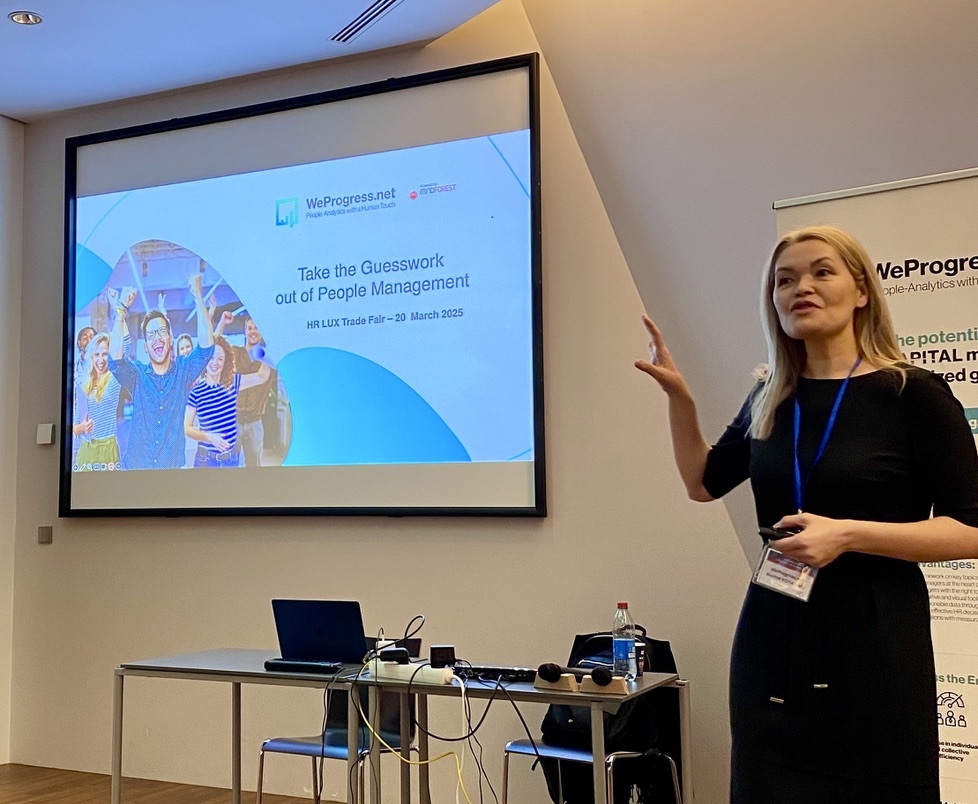Motivating your people
Motivation: getting the right balance
Your staff are like plants. They need certain conditions in order to be able to thrive. They need to understand your expectations and dispose of the necessary competencies to meet these expectations. Their objectives need to be measurable and attainable, as otherwise they will become frustrated and demotivated.
They need encouragement – we all have days when “things” don’t go so well – and support; they were hired to do a job, because you, as an employer, believed in their ability to do just that. So why not make them feel this?
They need access to the right tools of course. But above all, they need the right environment. They need to feel that they are part of a team working towards the same goals in a culture which encourages innovation and creativity, which encourages staff to take initiatives and decisions without fear of reprisals. Yes, there may be the odd mistake, but we all know that the only people who never make mistakes are the ones sitting on their hands!
Employee potential
In the words of Marcus Muller[1], employees need to be able to use their executive brains in order to realise their full potential. They need mental vitamins to charge them with energy and generate creativity. In times of great economic uncertainty, as we are undoubtedly currently undergoing, this becomes even more important.
Those who tend to look ahead and prefer to formulate long-term strategies will worry intensely if this is no longer possible. They need reassurance that given the right coefficients and support, they can go ahead and make reasonable assumptions in order to keep the boat afloat. They should be your most valued staff members, as they generate more value than they cost. In other words, they are highly beneficial to your company, both in monetary and social terms.
They will remain engaged, doing their utmost to keep the company on course and in doing so will act as role models for their colleagues. Do not underestimate the advantage of positive examples in time of crisis!
However, these people only feel at ease in their roles if they have choices, if they have a sense of belonging and if they believe they can make a valuable contribution, which is recognised and valued. If these people start to feel that no matter what they do, their engagement is not valued and their contribution not taken into account, they will slowly but surely resign and seek a new challenge elsewhere.
As Marcus Muller so rightly asserts, the staff of a company constitutes its most sustainable advantage. They cannot be copied, they interact and co-create, they are your added-value! Unfortunately, many companies fail to recognize this fact until too late, when turnover rises and team spirit levels plummet. Too much negativity will cause employees to react by using their instinctive brain, thus paralyzing their executive brain with all its positive attributes.
Team power
As a team leader, you can benefit from the power of your team. You need to listen to them – don’t just ask opinions and then implement your pre-conceived ideas – this will make them feel devalued.
In change management projects, Change Ambassadors are specifically trained to fulfil the role of passing on valuable information from the field to management and inverse, because not everyone can know everything all the time! In actual fact, every manager should be grateful for every staff member, who makes the effort to make suggestions for improvements and changes for the better. There are far too many others, who are happy to sit back and watch a catastrophe loom without doing anything to avert it! To quote Steven Covey:
“You’ve spent years of your life learning how to read and write, years learning how to speak. But what about listening?”
A coherent team disposes of an incredible knowledge base, make sure that this information is freely shared by encouraging a good network within the team. There should be an overall feeling of trust embedded in a no blame culture: surely is it better to try and fail, than not do anything at all? If the team feels it can rely on each other, it will feel more jointly confident in what it is aiming to achieve, particularly if there is a new specific goal ahead. By helping each other, they will also share their energy and keep moral high.
This is rather like someone offering you a really nice piece of chocolate when you are feeling tired. The right formulation of a text just won’t come or a walk in the woods to clear your mind and make way for new ideas, there are times when we all need the help of others, so it is vital to know whom we can rely on in such instances.
Make positivity your mantra
At times it may be impossible to believe, but in general there is always a positive aspect to every negative thing which occurs. Just sometimes, we need to dig a bit deeper to find it! If your team has learnt to look ahead and to adopt a positive mindset this will form an ideal basis in difficult times.
A common challenge will generate greater creativity – a team challenge – rather than despondency and resignation. Solidarity and flexibility will help the team to work together and focus on the task in hand, whilst not losing sight of their personal needs. For example there is no point in neglecting your own mental health to the extent of losing sleep, as this will have a negative impact on your own personal contribution. A team that enjoys working together will work better in such an atmosphere of mutual reliance and support. The Dalai Lama is quoted as saying “Just one small positive thought in the morning can change your whole day”.
Money is a short-term motivator
Motivation is about so much more than a salary increase, to quote Steven Covey [2] most highly effective people are motivated by 7 factors:
- Being proactive
- Beginning with the end in mind
- Putting first things first
- Thinking win-win
- Seeking first to understand, then to be understood
- Synergising
- Sharpening the saw
Obviously if they are highly effective, they are likely to earn good salaries, but they are predominantly motivated by other factors. They all form part of this sense of achievement, of meaningfulness, of being appreciated, which so many people need to feel. Conversely if you tell someone for long enough that they are useless, they will start to believe this; you cannot motivate people with negativity. Steven Covey also observes:
“The more we see people in terms of their unseen potential, the more we can use our imagination rather than our memory”.
True thanks
Motivation is not tangible. It can be measured in terms of productivity, but it is really about much more than figures. It is the extra hour spent optimizing an offer, the thought put into a client contact; it is about dedication and a sort of personal return on investment.
Inevitably if staff no longer feel motivated, they will start to ask themselves why this is the case and look for their own solutions, which are likely to be outside their current sphere of working. This is why it is essential to think of the people who work for and with you, to take an interest in them as human beings and above all to show them that you value their contribution. Thank them and mean it, show gratitude for their engagement and they will reward you with more. Never forget that your people are your greatest asset!
Let us help you
WANT TO RECEIVE OUR LATEST THOUGHT LEADERSHIP CONTENT?
Related posts
 Take the Guesswork out of People Management
Take the Guesswork out of People Management
 From processes to people: achieving quality
From processes to people: achieving quality
 Daring to lead Positive Transformation: What if Positive Emotional Capital was your key to sustainable change?
Daring to lead Positive Transformation: What if Positive Emotional Capital was your key to sustainable change?
 Why hire Change management professionals? We can do it alone!
Why hire Change management professionals? We can do it alone!
 Digital Transformation and Change Management: Lessons shared in an event hosted by Cebi and MindForest
Digital Transformation and Change Management: Lessons shared in an event hosted by Cebi and MindForest



